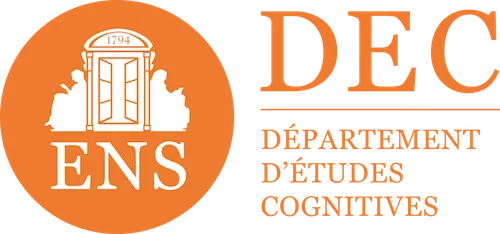

The e-Learning market of 2025-2030: AI is redefining the codes of learning
The e-Learning market is undergoing an unprecedented transformation. With projections exceeding 365 billion dollars for 2026 and annual growth of nearly 14%, the sector is no longer simply expanding but in full metamorphosis. At the heart of this revolution, artificial intelligence is emerging as the catalyst for a profound paradigm shift in how we learn, teach, and develop skills.
A fast-growing global market: the numbers that make you dizzy
The latest projections of the global e-Learning market reveal an exceptional growth trajectory. For 2025, the estimates converge to a range of 295 to 354 billion dollars, with a median projection of $320 billion according to Straits Research. This dynamic is further accelerated in 2026, where the market is expected to reach between 336 and 400 billion dollars, according to analyses by IMARC Group.
However, these raw numbers mask a more nuanced reality. The compound annual growth rate (CAGR) varies considerably across segments and regions, ranging between 8% for the most conservative estimates and 19% for the most optimistic. This disparity reflects the diversity of markets and technological maturities around the world.
Europe and France: mature markets with strong ambitions
The European e-Learning market is showing remarkable momentum, with an estimated value of 111.40 billion euros in 2025 and a projection of 212.38 billion euros for 2033 (CAGR 10.40%). Representing around 30% of the global market, Europe is distinguished by its structured approach and strong institutional support.
The Nordic countries are leading the way with penetration rates exceeding 50% in the Netherlands and Finland, according to Market Data Forecast. Germany has an impressive adoption rate with more than 60% of organizations using e-Learning. The United Kingdom, despite Brexit, maintains its dominant position with a 30.3% share of the European EdTech market.
France is positioned strategically in the top three European countries. With a growth rate of e-Learning in companies reaching 20.5% between 2024 and 2031, France is above the European average. This growth is based on solid fundamentals: 59.7% of the population has advanced digital skills, compared to an average of 55.6% in the EU.
Institutional support plays a crucial role in this dynamic. The 2021-2027 Digital Education Action Plan of the European Union, for example, aims to support the adaptation of education and training systems to the digital age. The Digital Europe program adds 8.1 billion euros specifically dedicated to the digital transformation of education.
AI in education: from promise to transformative reality
While the global growth of e-Learning is impressive, it is truly the integration of artificial intelligence that is redefining the contours of the sector. The market for AI in education is experiencing a spectacular trajectory: from $5.88 billion in 2024 to $8.30 billion in 2025 (+41%), with a projection of 32.27 billion for 2030 according to Grand View Research.
These figures reflect massive adoption in the field. 60% of teachers have already integrated AI in their daily practices, while 67% of students use AI technology regularly to learn.
AI is transforming learning at three fundamental levels.
- First, personalization: adaptive learning platforms are used by 43% of teachers. They adjust the content and pace in real time according to the performance of each learner.
- Then, automation: 41% of teachers use automated scoring systems, freeing up time for personalized support.
- Finally, the increase: 51% of teachers use educational games powered by AI.
The trends that are shaping the future: microlearning, adaptive learning, and virtual reality
Microlearning is emerging as a pragmatic response to the constraints of the modern world. With a market estimated at 2.96 billion dollars in 2025 and a projection of 5.49 billion for 2030, this format seduces 93% of organizations who now consider it essential. Its effectiveness is proven: 80% improvement in knowledge retention compared to traditional training.
Adaptive learning represents the realization of the promise of personalization. Adaptive platforms and informal learning generate an improvement in 25 to 60% of retention compared to traditional methods. This efficiency is explained by the ability of these systems to identify gaps in real time and to offer tailor-made learning paths.
Virtual and augmented reality is opening up new frontiers. The VR market in education, estimated at 17 billion dollars in 2024, is expected to explode to reach 65.55 billion in 2032. 75% of Fortune 500 companies have already adopted VR for training.
The ROI of e-Learning: when investment becomes strategic
The use cases of major companies demonstrate the exceptional profitability of well-deployed e-Learning. IBM has made savings of 200 million dollars by migrating to e-Learning. Every dollar invested generated $30 in return.
Dow Chemical has reduced its cost per learner by 95 to 11 dollars, generating annual savings of $34 million. To train 40,000 employees, the company saved $2.7 million while improving the quality and accessibility of training.
These successes are no exception. General metrics confirm the trend: e-Learning improves the retention of 25 to 60% against 8 to 10% for face-to-face, reduces the training time of 40 to 60%, and generates average savings of 50 to 70% on training costs.
Analysts' forecasts: towards systemic transformation
Major analysis firms are converging on a transformative vision of the sector. Gartner reveals that only 11% of L&D teams think employees have the necessary skills, while 57% of HR managers report critical skill shortages.
McKinsey projects that 60% of the global workforce will need new skills by 2030. The firm identifies a ROI annually by 7 to 10% for quality early education and notes that 92% of businesses plan to increase their investments in AI.
Deloitte, in its Tech Trends 2025 report, positions AI as a fundamental infrastructure, comparable to electricity. According to them, the transition from digital transformation to transformation through AI marks a fundamental paradigm shift.
Strategic implications: beyond numbers, a cultural transformation
The data points to an unavoidable conclusion: organizations that are slow to adopt e-Learning risk not only losing competitiveness but also seeing their talents migrate to environments that are more conducive to professional development.
Transformation goes beyond the simple digitization of content. It involves a complete overhaul of the pedagogical approach: from the unidirectional transmission of knowledge to learning that is adaptive, continuous and integrated into the workflow. AI finally makes it possible to realize the promise of ”Learning in the flow of work“, where learning becomes invisible because it is perfectly integrated into daily professional life.
For players in the sector, the opportunity is historic. The convergence of technological maturity, cultural acceptance, and institutional support creates a unique window for redefining learning. Solutions that combine proven educational effectiveness, AI-based personalization, and seamless integration into work environments will be the biggest winners in this transformation.
The dawn of a new era
The die is cast but the e-Learning market is not just about impressive growth figures.
For organizations, the challenge goes beyond simply optimizing training costs. It is about building a capacity for continuous adaptation in a world where skills are becoming obsolete more and more quickly. Businesses that invest in smart learning platforms now aren't just saving money: they're building their competitive advantage tomorrow.
Europe and France, with their structured approach and institutional support, are particularly well positioned to take advantage of this transformation. The challenge will be to maintain the balance between technological innovation and humanist values, between efficiency and inclusion, between personalization and data protection.
Sources:
— Research&Markets (estimated $295—354 billion for 2025), iMARC/Straits Research, projections 320→$365 billion (2025→2026), CAGR ~ 14%
— Grand View Research: AI in education, $5.88 → $8.30 billion (2024→2025), $32.27 billion in 2030
— AIPRM/Forbes Advisor: 60% of teachers use AI, with 51% in educational games, 43% adaptive platforms, 41% grading/feedback
— Matsh: 67% of students use AI regularly
— Market Data Forecast & national sources: Europe 111.4 → €212.4 billion, rate > 50% (Netherlands/Finland), > 60% adoption (Germany), 30% EdTech share (United Kingdom), France +20.5% → 212.4 billion €, France +20.5% & 59.7% digitally competent population
— Mordor Intelligence & Fortune Insights: microlearning, VR in education
— McKinsey & Deloitte: 60% employees to be requalified, 57% HR shortages, 11% L&D authorized
— eLearning Industry and IBM/Dow Chemical: ROI up to $30/$1, savings of 50—70%, retention 25—60%, time —40—60%, time
Make an appointment directly with our eLearning experts for a demo or simply more information.












